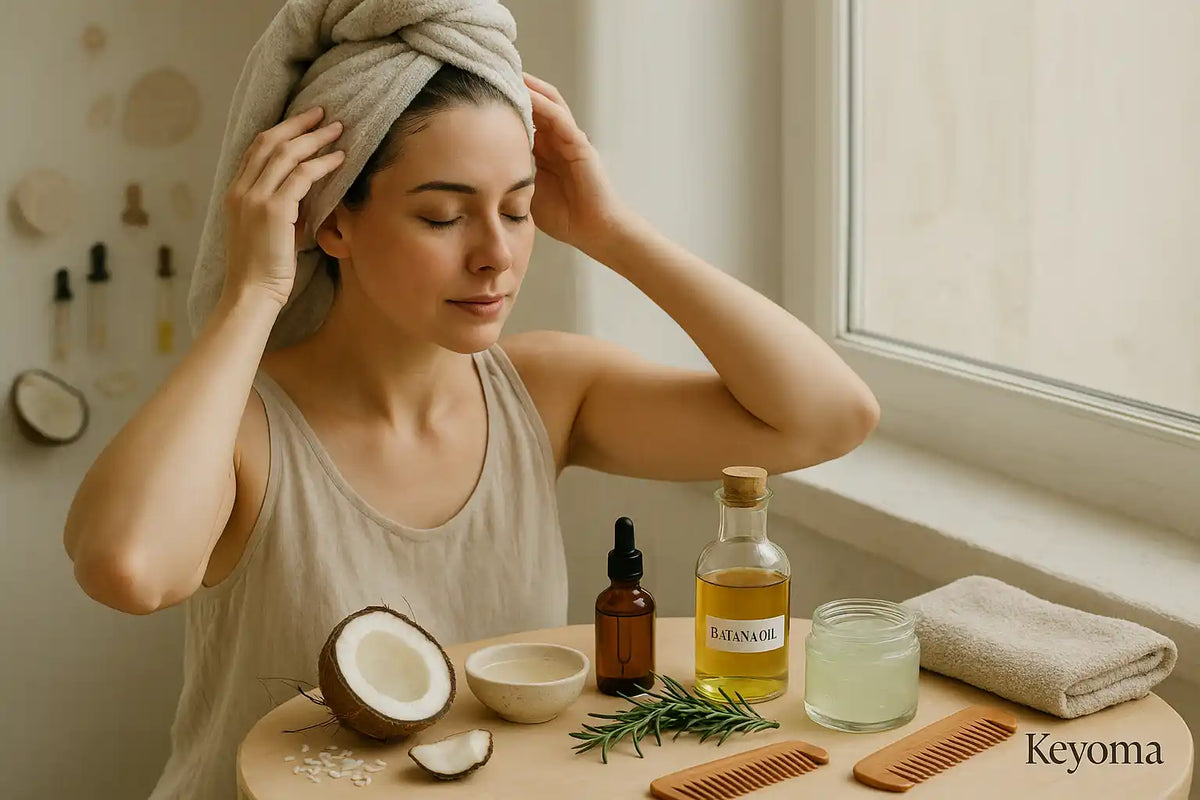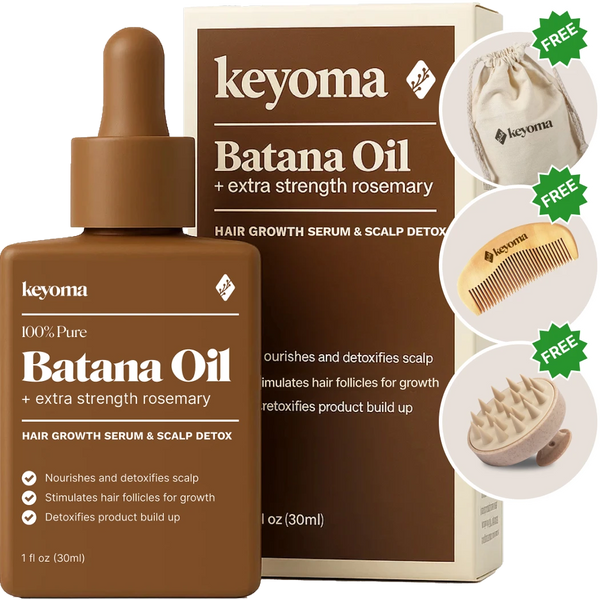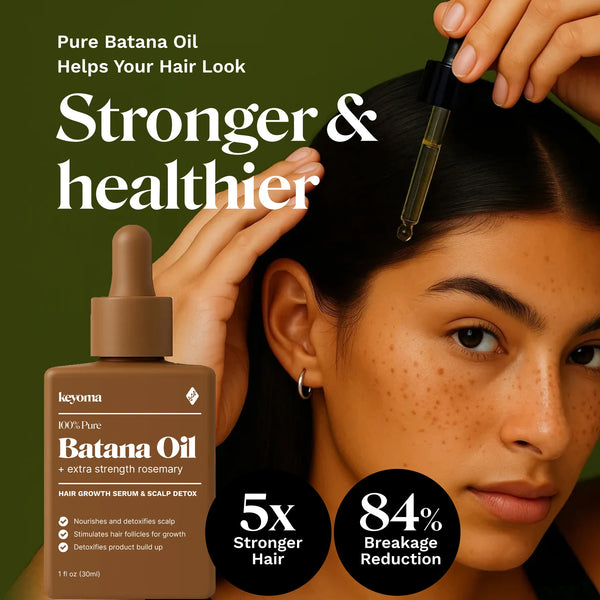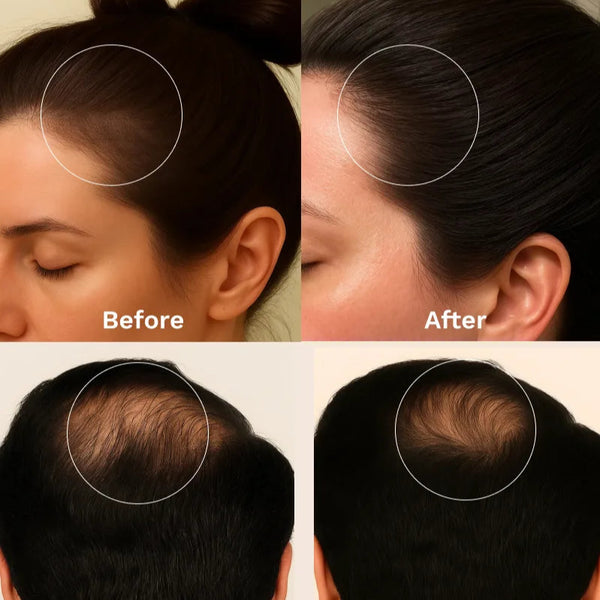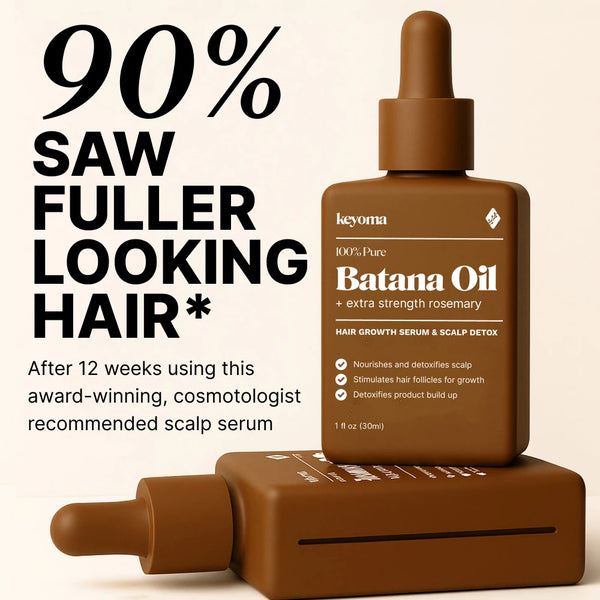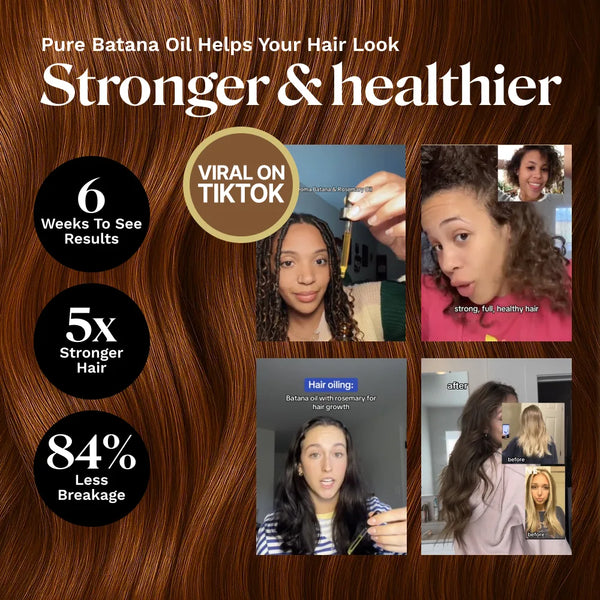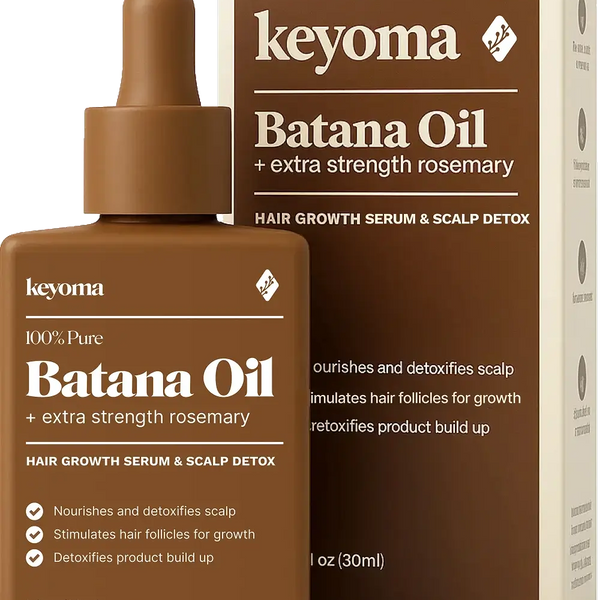In this article
You can try natural methods to regrow your hair depending on what’s causing the shedding. Some of us get results from daily scalp massages or using ingredients like aloe vera and essential oils, such as coconut or lemon oil.
We all lose hair—about 50 to 100 strands every day, according to the American Academy of Dermatology. You won’t notice this because your scalp holds around 100,000 follicles, and most of the time, your hair grows back.
But if you see faster or more visible hair loss, there might be a deeper reason. Sometimes it’s temporary. Other times, it leads to permanent changes.
Hair loss doesn’t always affect your physical health, but it can impact how you feel about yourself.
You’re not alone. Let’s look at 22 ways you can naturally support regrowth and take better care of your scalp and hair.
1. Massage

Using hair oils and masks while massaging your scalp can help stimulate blood flow and support thicker, healthier strands.
When you gently stretch the skin during a massage, you activate dermal papilla cells at the base of your follicles. These cells drive the hair growth cycle and help renew hair from the root.
In a 2019 study, people who massaged their scalps daily saw better circulation, improved scalp condition, and more hair growth over time. Scalp massage also helps ease tension and reduce stress, which can both trigger hair shedding.
To try it, use your fingertips—not your nails—and move in small, circular motions. Apply light to moderate pressure as you work your way across your scalp. You don’t need to stick to a strict time limit, but in the study, participants massaged for 4 minutes a day for 24 weeks.
2. Batana Oil

You want a natural solution that supports stronger, fuller hair—and batana oil delivers. This oil, pressed from the American palm tree nut, is packed with essential fatty acids and antioxidants.
The benefits of batana oil go beyond hydration. It nourishes the scalp, strengthens brittle strands, and restores shine. Its anti-inflammatory and antimicrobial properties also help maintain a healthy scalp environment, which is key for consistent growth.
If you’re dealing with thinning, dryness, or breakage, adding batana oil to your routine helps support regeneration from root to tip. You can apply it as a scalp treatment, mix it with other natural oils, or use it as a deep-conditioning mask.
Batana oil gives you a way to restore your hair’s health without harsh chemicals—and that’s what makes it a powerful natural treatment for growth.
3. Rosemary Oil
Researchers from a 2020 review say rosemary oil may encourage new hair growth and help reduce shedding.
A 2015 study found rosemary oil worked as well as minoxidil when treating androgenetic alopecia, a common cause of thinning.
To use it, blend a few drops of rosemary oil with a carrier oil like jojoba or argan. Massage the mix into your scalp and strands, then rinse. You can do this several times each week.
You can also mix rosemary oil into your regular shampoo or conditioner. Always dilute essential oils to avoid skin irritation.
4. Aloe vera

We can use aloe vera to support hair health and calm an irritated scalp. Many people say aloe vera helps by:
-
Easing scalp inflammation
-
Softening and hydrating the hair
-
Reducing dandruff flakes
-
Clearing buildup from blocked follicles
Still, a 2022 review notes that most studies so far have involved animals, so we need more research on how aloe vera affects human hair.
To try it, apply fresh aloe vera gel to your scalp several times a week. You can also switch to a shampoo or conditioner that lists aloe as a main ingredient.
5. Coconut oil

Coconut oil gives our hair key fatty acids like lauric acid that seep into the strands and help prevent protein loss.
A 2021 study showed that applying coconut oil on the scalp can support a healthier scalp microbiome, which helps keep our follicles in better shape.
You can use coconut oil before or after washing, depending on how oily your hair feels. If you have oily roots, try leaving it in for a few hours or overnight before rinsing.
Gently massage the oil into your scalp and work it through the ends. If your hair feels dry, leave it on as a conditioner without rinsing.
6. Viviscal
Viviscal is a natural supplement that supports hair growth, especially for those of us dealing with thinning strands.
It blends ingredients like:
-
Shark and mollusk powder
-
Natural silica
-
Vitamin C from acerola cherry
-
Biotin
-
Zinc
These nutrients may help build stronger strands and support new cell growth.
To see visible changes, you’ll need to take Viviscal twice a day for at least 6 months. You can also try their shampoo and conditioner for added support.
7. Fish oil
Fish oil supplements pack essential nutrients like proteins and omega fatty acids that support our hair and overall wellness.
A 2015 study showed that combining omega supplements with antioxidants helped increase hair density, strand thickness, and reduced shedding.
Omega-3s also fight inflammation and strengthen the immune system, which may help support a healthier hair growth cycle.
Before adding any supplement, talk to your doctor and stick to the suggested dosage on the label.
8. Ginseng
Adding ginseng to your routine may support new hair growth by activating our hair follicles. The key ingredients, called ginsenosides, likely drive these effects.
Follow the dosage instructions closely, and check for any side effects before starting.
9. Onion Juice
If you can tolerate the scent, using onion juice might be worth your time.
A 2014 study showed that onion juice supports hair regrowth in people with patchy alopecia areata, an autoimmune condition where the body attacks its own hair follicles.
Onion juice may also boost blood flow. A 2015 animal study found that it increases keratinocyte growth factor, which plays a key role in how our follicles grow and function.
To try it, blend a few onions and strain the juice. Rub it into your scalp and hair, wait 15 minutes, then rinse with shampoo.
10. Reduce Stress
Some causes of hair loss, like genetics, stay outside our control. But we can take steps in our daily routines to help slow down or prevent hair thinning. Your overall health affects your hair health too.
One common issue is telogen effluvium—a condition where physical or emotional stress pushes our hair into a resting phase. You might notice more strands falling out when you brush, shampoo, or touch your hair.
This type of shedding usually fades in six to eight months, though it can return. Learning to manage your stress can help reduce it.
You can lower emotional stress by:
-
Doing things you enjoy—like reading, listening to music, or meeting friends
-
Eating balanced meals
-
Sleeping enough every night
-
Staying active
-
Keeping a positive mindset
-
Practicing mindfulness through meditation, yoga, or tai chi
Physical stress like childbirth, certain infections, radiation, or medications may also trigger hair loss. While you might not control those triggers, hair usually starts growing again once the stress ends. For example, hair loss after childbirth may last from six months to two years.
11. Change Your Diet
If we don’t get enough key nutrients, we might start losing more hair than usual. For example, iron deficiency anemia often leads to shedding. If you don’t eat enough iron, your body can’t support strong hair growth.
You can add more iron to your meals by eating:
-
Iron-fortified cereals
-
Dried beans
-
Dried fruits like raisins, apricots, or prunes
-
Eggs
-
Lean red meat
-
Liver
-
Oysters
-
Salmon and tuna
-
Whole grains
To help your body absorb more iron, pair these foods with sources of vitamin C like citrus fruits, strawberries, tomatoes, or potatoes.
Research shows that a low-protein diet might also raise your risk of hair thinning. Add more protein by eating beans, tofu, meat, fish, or low-fat dairy products.
Before you start taking new supplements, talk to a healthcare provider. They can run blood tests to check which nutrients you need.
12. Geranium oil
Geranium, also known as Pelargonium graveolens, grows in South Africa and gives us a fragrant oil made from its leaves.
A 2017 study on animals showed that geranium oil helped improve blood flow and encouraged hair regrowth.
You can blend three drops of geranium essential oil with eight drops of a carrier oil like jojoba or coconut. Massage it into your scalp and hair. You can also mix a few drops into your shampoo or conditioner to use it more easily during your routine.
13. Lemon oil
A 2016 study on animals showed that lemon oil might support scalp health and trigger hair regrowth. A 2021 review also pointed to sinapic acid—a natural compound found in lemons—as a possible ingredient that supports hair growth.
You can squeeze fresh lemon juice and apply it to your scalp and strands about 15 minutes before washing your hair. Or mix lemon essential oil with a carrier oil and use it as a hair mask to nourish your scalp.
14. Red Ginseng
A 2021 study found that red ginseng may help trigger hair regrowth. Researchers aren’t exactly sure how it works, but they believe it indirectly activates the hair follicles.
Before you start taking any supplement, check with your healthcare provider to make sure it won’t interfere with your current treatments or health conditions.
15. Jojoba Oil
Jojoba oil soothes inflammation and supports skin repair. We often use it in hair and skin products because it helps other active ingredients absorb more effectively. Think of jojoba oil as a carrier that delivers nutrients directly to your hair follicles.
Research hasn’t shown that jojoba oil alone triggers hair regrowth, but some findings suggest it reduces breakage. Its chemical structure makes it ideal for blending with other natural ingredients to boost scalp health.
You can safely apply jojoba oil to your scalp. Most people tolerate it well, but like any product, it might cause irritation or allergic reactions in some cases.
16. Castor Oil

Castor oil comes from plants and contains ricinoleic acid, which helps calm inflammation.
While we don’t have clear proof that castor oil directly boosts hair growth, it can hydrate dry strands, reduce irritation, and fight bacteria. These effects support a healthier scalp and give our follicles a better chance to grow strong hair.
In rare cases, castor oil might cause acute hair felting, where hair becomes tangled and hard to manage. But for most of us, castor oil is safe to use on the scalp. You can blend it with coconut oil to enhance the benefits.
17. Rice Water
People in East Asian cultures have used rice water for generations to support hair growth. This cloudy liquid, left behind after rinsing rice, is said to boost hair elasticity and reduce friction on the strands.
We don’t yet have strong evidence showing that rice water helps regrow hair. A few lab studies suggest rice bran extract might support hair growth, but we still need more human studies.
Should you give it a shot? Definitely. Rice water is safe, affordable, and easy to make. Including it in your hair care routine won’t hurt—and it might help.
18. Be Gentle With Your Hair
You can easily harm thinning or weak hair if you pull on it or use harsh products. When our hair starts shedding more than usual, we need to treat it with extra care.
Here’s how you can update your hair care habits to protect your strands:
-
Always apply conditioner after shampooing to reduce breakage and split ends
-
Avoid tight styles like buns, braids, cornrows, pigtails, or ponytails—these pull on the roots and can trigger traction alopecia, a form of hair loss that can become permanent
-
Try not to twist or tug your hair with your fingers
-
Brush only when needed, and use gentle strokes—overbrushing leads to more fall
-
Choose a mild shampoo, especially one made for thinning hair
-
After washing, use a leave-in conditioner or detangler to prevent breakage and keep strands smooth
19. Avoid Bleaching or Coloring Your Hair
Frequent hair coloring can weaken your strands and increase hair shedding. If you're dealing with hair loss, it's best to avoid lightening your hair. Bleach often contains high levels of peroxide, which strips and harms the hair shaft. Try choosing a shade that stays close to your natural color instead.
Bleached hair also becomes more vulnerable to sun damage, making it dry, brittle, and prone to breakage. If you’ve already bleached your hair, protect it by wearing a wide-brimmed hat when you go outside.
20. Avoid Excessive Heat Styling
Heat styling weakens already delicate strands and can make hair shedding worse. Try skipping the blow-dryer and let your hair air-dry instead. You can also wrap your hair in a microfiber towel to absorb moisture more gently.
Hot tools like straighteners and curling irons can burn and break your hair. Use them sparingly—save them for special occasions like job interviews or important events. Let’s give our hair a chance to recover and stay strong.
21. Treat Dandruff
Dandruff often shows up as dry flakes on the scalp. While it doesn’t directly trigger hair loss, it can make your scalp itchy—and constant scratching can lead to more shedding.
When buildup increases or you keep scratching, the scalp becomes inflamed. That irritation pushes more strands into the shedding phase.
You can reduce itching by steering clear of common dandruff triggers like cold weather and stress. Try shampoos made to treat dandruff. You’ll find many of them at drugstores without a prescription.
22. Melatonin
You probably know melatonin as a supplement that helps with sleep. But this antioxidant also supports skin repair—and it might help with hair growth too.
Some early studies show that applying melatonin to the scalp could slow shedding and improve density for those of us dealing with androgenetic alopecia. Still, those studies were small, so we need more research to confirm its effects.
You might consider trying it. When we apply melatonin to our skin, our bodies absorb it. While it’s generally safe, it might influence your sleep rhythm, so keep an eye on how you feel.
Support Natural Hair Growth With Smart Habits and Scalp Care with Keyoma
You can support healthy hair growth by sticking to simple habits. Wash your hair often to keep the scalp clean. Use leave-in conditioner to protect strands. Skip heat-based tools like curling irons, and when you must blow-dry, use the coolest setting to avoid damage.
You can also strengthen your routine by managing stress and adding key nutrients through supplements. Natural ingredients like red ginseng, geranium oil, rosemary oil, and coconut oil may improve your scalp and stimulate growth.
For deeper nourishment, try Keyoma’s batana oil. It’s packed with scalp-boosting benefits that help repair, strengthen, and thicken your hair—naturally.
Featured Product
100% Pure Batana Oil + Rosemary
↓El mejor aceite de Batana para comprar↓
1 mes
Suscríbete y ahorra
- Suministro para 30 días entregado mensualmente $35
- 30% de descuento de por vida $6
- Kit de productos esenciales para el cuidado del cabello GRATIS $33
- Peine de madera personalizado GRATIS $10
- Masajeador de cuero cabelludo GRATIS $15
- Bolsa de viaje ecológica GRATIS $8
- Garantía de devolución de dinero de 30 días
- Envío gratis
- Portal en línea para cancelar, omitir o pausar fácilmente.
Compra única por 1 mes
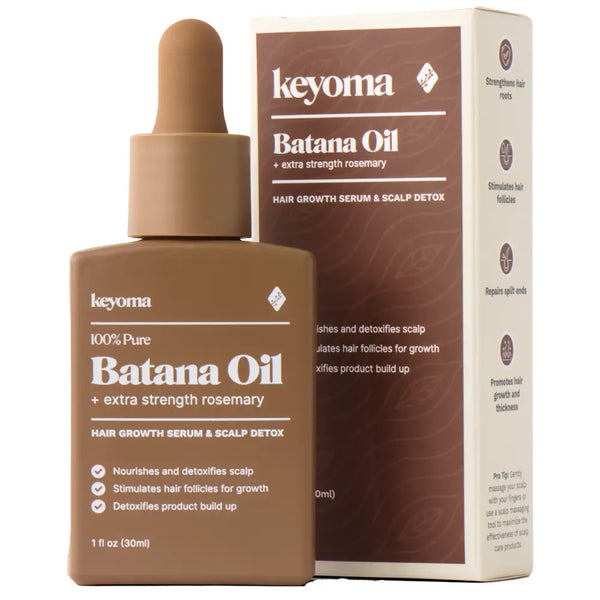
- Suministro para 30 días $50
- 30% de descuento de por vida $6
- Kit gratuito de productos esenciales para el cuidado del cabello $33
- Peine de madera personalizado gratis $10
- Masajeador de cuero cabelludo gratuito $15
- Bolsa de viaje ecológica gratis $8
Tu carrito
Su carrito está actualmente vacío
Podría gustarte...
Buscar en nuestra tienda

